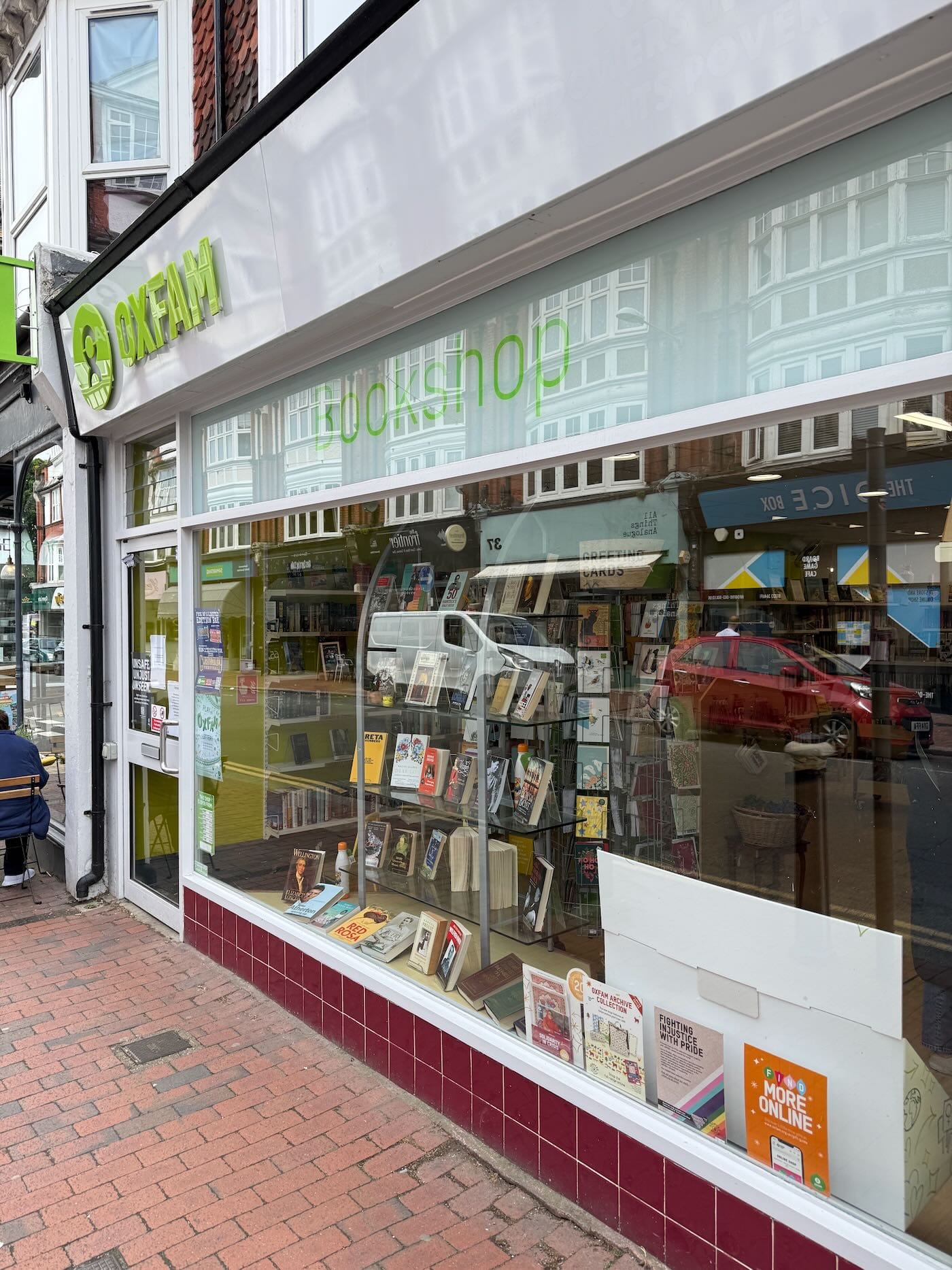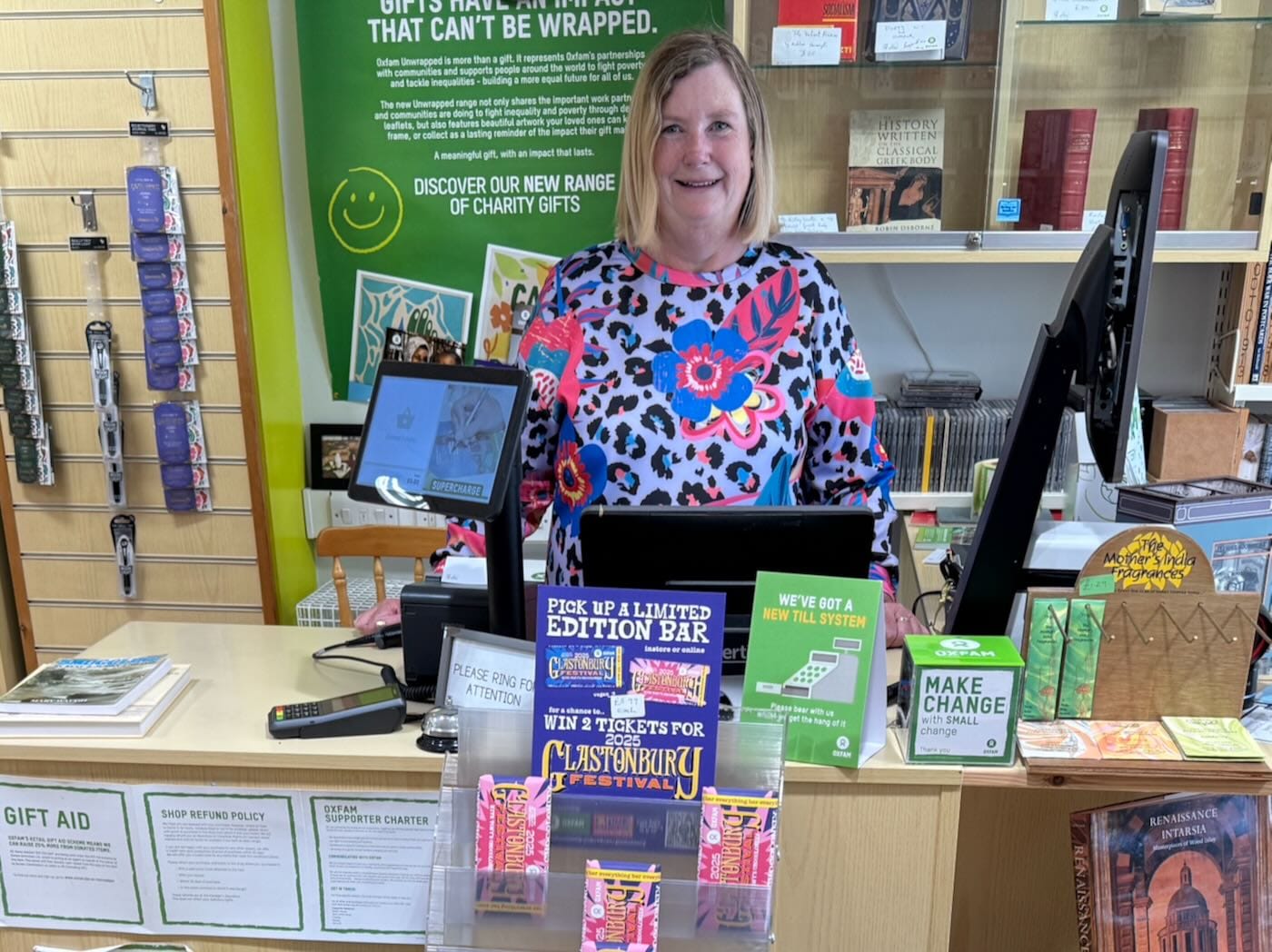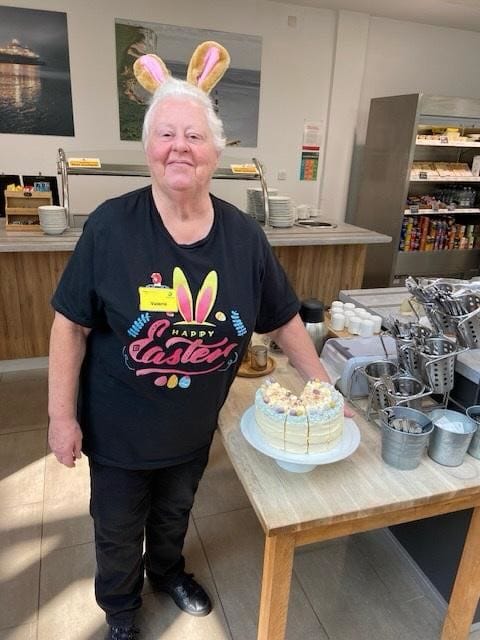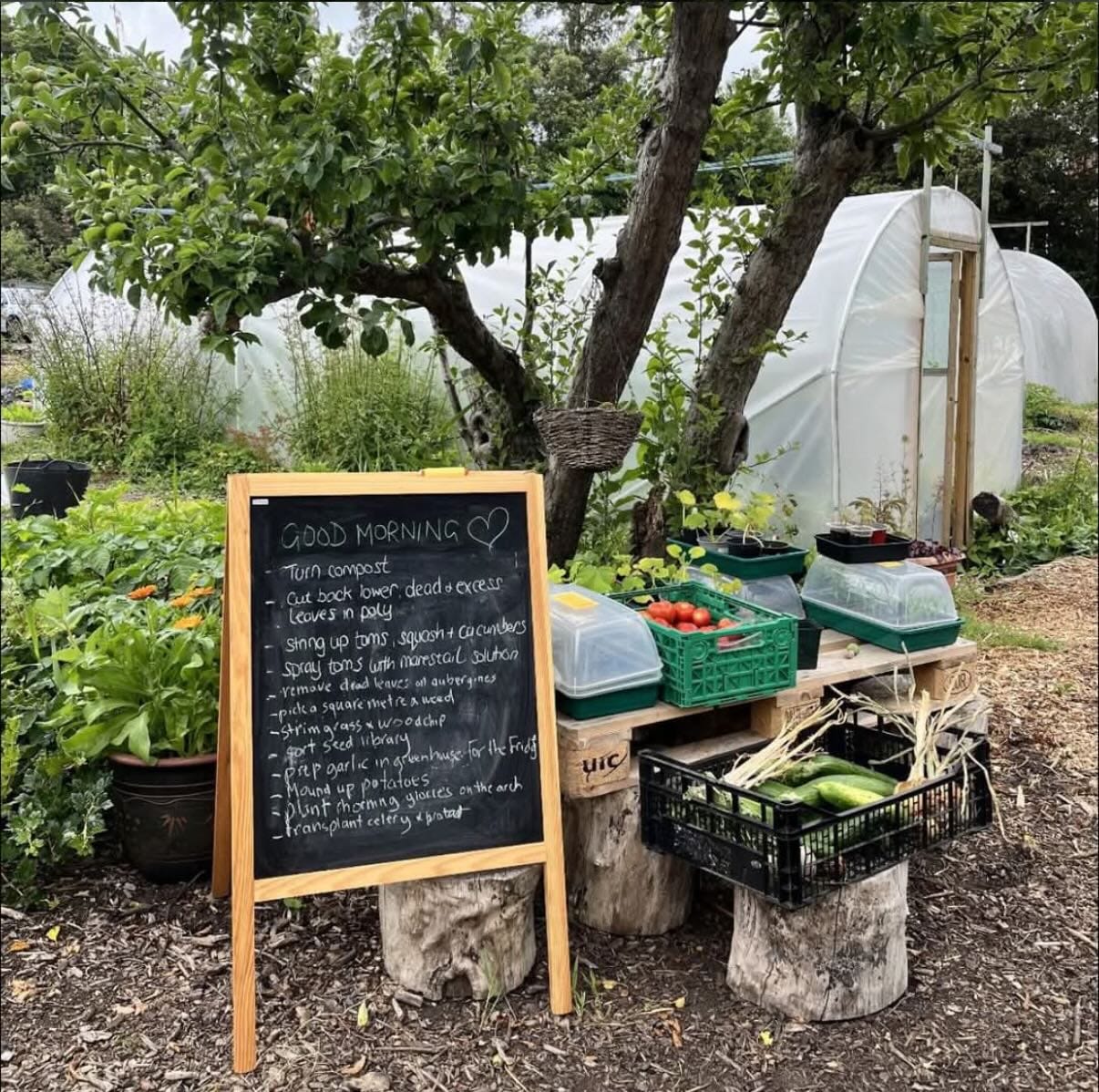The joy and value of volunteering

Community reporter Berenice Pringle, who gives time to the Friends of Eastbourne Seafront and the Oxfam bookshop, looks at volunteering in the town, from its history to what motivates volunteers, both young and old.
As I started planning for retirement, volunteering was not a high priority. “I’m never going to do something for which I don’t get paid,” I told my partner, only half-jokingly.
"And if I ever show signs of wanting to join a committee, please stop me.”
I now volunteer with two organisations, and I’ve even joined the management team of one. The surprising part? I’m loving it!
The recent National Volunteers’ Week, held every June, is a time to celebrate the millions of people across the UK who give their time, energy, and passion to help others.
My own change of heart got me thinking about what inspires so many people to volunteer. And how has volunteering shaped the communities we live in, not just now, but throughout history?
A brief history of volunteering
While it might seem like a modern phenomenon, volunteering dates back as far as medieval Britain, when hospitals in monasteries and alms houses were run by volunteers offering care to those in need.
The word “volunteer” was first used in the 17th century to describe someone who offered themselves for military service, freely, and without coercion.
As society progressed, so did the nature of volunteering. During the industrial revolution, there was growing awareness of the struggles faced by the poor, the sick, and the marginalised.
This led to the formation of organised groups that aimed to help others, two of the earliest being the YMCA – founded in London in 1844 – and The Salvation Army, which was established in 1865.
These movements laid the groundwork for the vast and varied volunteering landscape we see today, with people coming together, driven not by profit, but by purpose.
Giving your time in Eastbourne
One of the earlier volunteer-led organisations in the area was The Friends of Eastbourne Hospitals which, according to its website, was founded in 1948, around the same time as the NHS. Meanwhile, the Eastbourne Samaritans has been offering a listening ear to townspeople since 1965.
In the early 1980s, the South Downs Volunteer Ranger Service was launched to help improve public access to the countryside between Eastbourne and Seaford. Since then, their work has expanded to include conservation across the South Downs National Park. Recently, a pilot project called the Beachy Head Ambassadors has been set up in the area to help people enjoy the area responsibly and safely.

Eastbourne, alongside every other British town, has experienced the changing face of the high street. As retail has shifted to big supermarkets and online, charity shops have filled empty shops in the town centre.
These offer not only a second life for donated goods and an income for the charity in question, but also a place for volunteers to connect, contribute, and gain experience.
Several groups have emerged to protect and preserve local heritage and green spaces, particularly as local authority face tight budgets. These include the Friends of Meads Parks and Gardens, the Friends of Motcombe Pool, and one of the organisations I volunteer for, the Friends of Eastbourne Seafront.
Volunteering is for all ages
Many people associate volunteering with retirement, as it is a way to stay active, meet new people, and give something back after decades in the workforce. Research has often shown that it can improve wellbeing, reduce loneliness, and contribute to longer, healthier lives.
Stephanie Dawe, who volunteers with the Friends of Eastbourne Seafront, agreed that volunteering gives structure to retirement, boosts wellbeing, and is even a way to get more exercise.
But young people are increasingly getting involved, too, although often for different, more intrinsic reasons; volunteering is an opportunity to gain work experience, develop skills, or contribute to causes about which they care. With a more competitive job market and many roles now based remotely, some young adults are also looking for real-world engagement and a sense of community.

Tania Beudel, manager of the Oxfam Bookshop in Grove Road, has noticed this shift. The younger volunteers at the shop value the structure, social contact and experience, especially for those working or studying from home.
Organisations are also responding to this growing interest. St Wilfrid’s Hospice, for example, runs a Young Clinical Volunteer programme, giving students hands-on experience in a healthcare setting, useful for those considering careers in medicine, nursing or care work.
Why do people volunteer?
Volunteering is woven into the fabric of life in the UK. According to the government’s Community Life Survey for 2023/24, 28% of adults in England (approximately 12.9 million people) reported taking part in formal volunteering at least once in the past year, and 16% volunteered at least once a month. The most active age group was those aged 65 to 74.
For many, volunteering starts with a personal connection, often a charity or a cause they strongly believe in. Others want to support their local community, to get outside and be active, or to use their professional or life skills in new ways.
Some volunteer to help others in need, while others are motivated by more personal reasons: a desire for structure, routine, connection, or something meaningful to do.
What’s clear is that the act of giving time, freely and willingly, has far-reaching benefits: for individuals, for communities, and for society as a whole.
Friends of Eastbourne Seafront’s Stephanie Dawe said she was drawn to volunteering because it aligned with her values and offered a way to “give something back to the town I live in”, while Paola Eliahoo spoke of the joy of being outdoors, chatting with visitors, and sharing a love of Eastbourne.
Another of the organisation’s volunteers, Ellie Roper, said: “I like the idea of being by the sea, chatting and helping people while promoting Eastbourne”. She also enjoys camaraderie and happiness from being involved in a group of like-minded people.

Several volunteers emphasised the importance of community, whether through offering a warm welcome to tourists, supporting vulnerable groups, or working with others to create positive change.
Val Cooper, Welcome Point and café volunteer at St Wilfrid’s Hospice, described her strong sense of satisfaction from helping others and supporting the hospice, the work of which was “absolutely vital.”
Others were motivated by a sense of responsibility. Jane Blau volunteers with the RNLI (Royal National Lifeboats Institution) because she supported the organisation’s “quest to save lives at sea”.
“I feel I could make a difference to someone’s ability to survive if they got into difficulty in the water,” she said.
Volunteering can also bring unexpected personal benefits. Liz Magraw, a volunteer with Rooted community food-growing project, made use of her existing skills as an educator with a group that had a direct impact within the community.
She spoke of the feeling of self-worth and belonging that came from creating a community with like-minded people; she wrote about how she had found her ‘Eastbourne tribe’.
What do managers think of volunteers?
Managers value highly the range of skills and personal qualities that their volunteers offer, with reliability, friendliness, initiative and strong people skills seen as being essential. However, the frequency of holidays taken by many retired volunteers is something managers have to accept!
Gaynor Sedgwick, director and chair of the Friends of Eastbourne Seafront, emphasised the dedication and enthusiasm of volunteers who work to improve and maintain the seafront, highlighting the importance of teamwork and community impact.
At the Oxfam Bookshop, Tania Beudel appreciated volunteers who show a passion for books, but also those who take initiative beyond traditional sales and stock-processing roles to help with cleaning or DIY, tasks essential for the smooth-running of a shop mainly staffed by volunteers.

Zoë Mele, front of house supervisor at St Wilfrid’s Hospice, said: “Our volunteers are at the heart of what we do; we couldn’t do without them.”
The hospice has more than 100 volunteers performing essential tasks from staffing the Welcome Point and the café, to serving patient meals and offering companionship; from housekeeping and gardening to flower arranging. The hospice is also supported by volunteers in its charity shops.
Getting involved
If there’s one thing volunteering teaches you, it’s that giving a little can offer a lot, both to others and to yourself.
Looking back, my own change of heart around volunteering was partly shaped by those strange, quiet Covid years. With so much of life on hold, I found myself missing contact with people, craving structure, and wanting to feel useful again.
I realised I needed something more than just keeping busy, I wanted to have a purpose, to feel like I was making a difference, and to find an outlet for the skills and experience I’d built up over a lifetime.
Volunteering has connected me with others, gives me a reason to get up in the morning, and reminds me that community is built on small acts of generosity and shared effort.

The best part of volunteering is that it doesn’t have to be a grand gesture or a lifelong commitment. You can start small; an hour here or there helping out at a local event, a charity shop, or a beach clean-up. You can try out different groups and organisations.
Whatever your age, background, or availability, there’s a group near you that would be overjoyed to have your help.
As National Volunteers’ Week reminds us, every volunteer matters. So, if you’re thinking about it, why not take the next step? You might be surprised where it leads …
Useful links
Search for volunteer opportunities in East Sussex:
https://www.tribeproject.org/east-sussex-volunteering
Volunteer with St Wilfrid’s Hospice:
https://www.stwhospice.org/support-us/volunteer-with-us/
Volunteer with Oxfam:
https://www.oxfam.org.uk/get-involved/volunteer-with-us/
Volunteer with RNLI:
https://rnli.org/support-us/volunteer
Friends of Eastbourne Seafront volunteering opportunities:
https://www.friendsofeastbourneseafront.org.uk/about-3
:: If you think this type of community reporting is better than reading PR handouts presented as ‘news’, please support us. We are a Community Interest Company and the content is free to read but we ask those who can to make a contribution to pay professional journalists to train community writers and edit their features. One-off donations are here or become a member here. Thank you!



